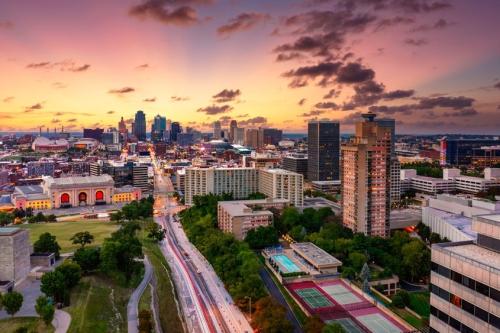Economic crises have a strange way of catalyzing market and policy innovation.
The Great Recession is no different. In the midst of rising unemployment, increasing poverty and battered industries, the next economy is slowly coming into view.
The Seattle region may just lead the way. But it won’t be easy. To maximize Seattle’s strengths as an innovative, progressive city, renewed civic collaboration and shrewd government intervention, on the small and large scale, will be necessary.
This next economy will be a low (or at least reduced) carbon economy, altering our energy sources, the products we buy, the location and form of our communities, and how we get around.
It will be innovation led, as we aim for quantum leaps on everything from clean technology and renewable energy to high speed rail, the smart grid and health care information technology.
It will be less driven by domestic consumption and more oriented toward exports, particularly to rapidly industrializing nations.
And, perhaps most important, it will be metropolitan led. Metropolitan areas, here and abroad, will be the vanguard of national renewal because they overwhelmingly concentrate the assets that matter today, assets like innovation, human capital, infrastructure and quality places.
The top 100 U.S. metropolitan areas contain two-thirds of our population and generate three quarters of our gross domestic product. Greater Seattle is a powerhouse, contributing more than 69 percent of Washington’s economic output while housing only 51 percent of the state’s population.
As one of the nation’s top ports, and a leading trade partner with China and Japan, Seattle is positioned to take advantage of the shift toward exports.
Home to the University of Washington, iconic firms, world-class philanthropies and entrepreneurial startups, Seattle is a leader in the burgeoning fields of biomedicine, global health and nanotechnology.
As the nation’s local catalyst for climate action, led by Mayor Greg Nickels, Seattle has a head start on creating new markets in green building, electric vehicles and sustainable urbanization.
Yet realizing Seattle’s potential won’t just happen. Market creation will depend on savvy government actions, pulling the region together in ways large and small
In the end, this may be Seattle’s greatest challenge.
The metropolis is well known for its laudable commitment to community engagement and democratic process. Yet the “Seattle Way” has a nasty habit of delaying decisive actions. Light rail transit took decades to achieve. The hard-negotiated Alaskan Way Viaduct solution, crucial to the port and the family wage jobs it supports, may be headed in the same direction. Transformative investments like Forward Thrust in the 1960s seem near impossible today.
Success in market innovation must now be applied to education. Seattle looks great on educational attainment in general, but not so great when it comes to educating kids who actually grow up here. Fortunately, there are promising moves afoot, in the early learning and postsecondary education arenas. Obama initiatives like Promise Neighborhoods could provide additional leverage.
The metropolis does not have a crisp collaborative vision, critical in today’s hyper-global competition. There are pieces of a vision, given the fine work of groups like the Puget Sound Regional Council, Cascade Land Conservancy, and SkillUp Washington. Now is the time to pull these disparate activities together, forge a common vision and then align federal and state investments in service of the goal.
In the end, of course, metros “cannot go it alone.” A cohesive metropolitan vision could lead D.C. and Olympia to more purposeful, pro-metro action. These two Washingtons still treat the nation and the state as if they are a network of small towns circa 1909. That must change.
With hard work and some luck, this could be Seattle’s moment. That would be the perfect ending to this dismal recession.



Commentary
Op-edSeattle’s Opportunity Emerging from the Great Recession
October 12, 2009